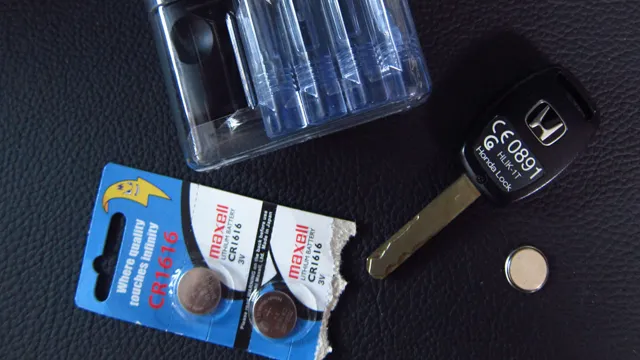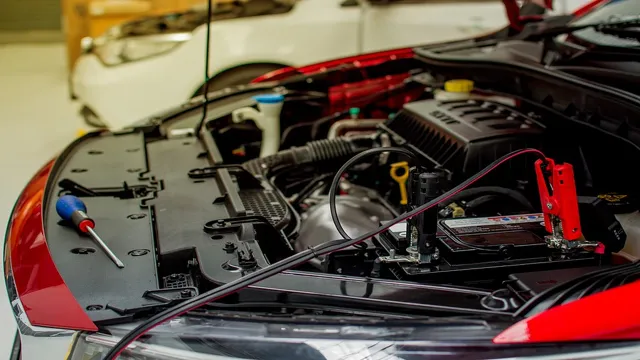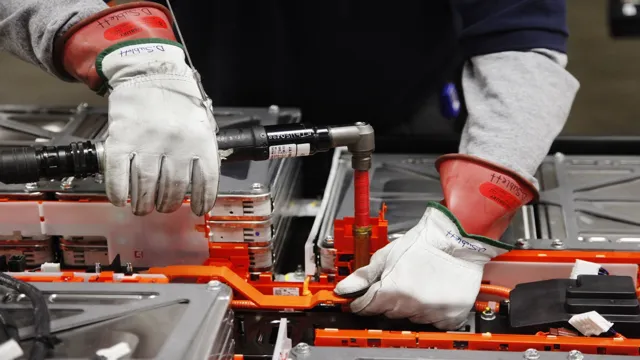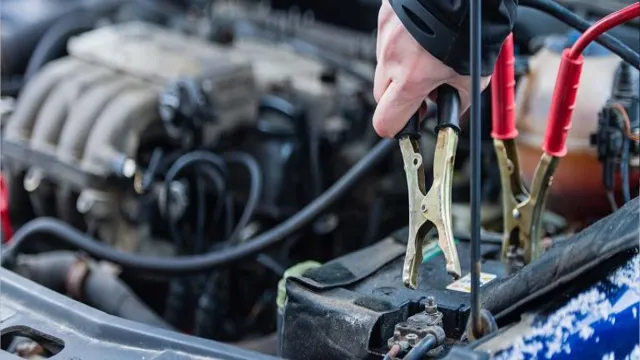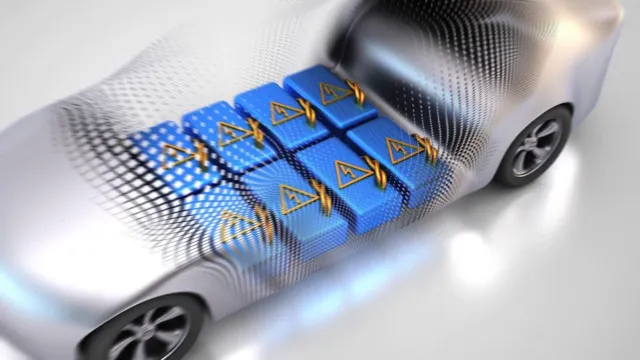The Dark Side of Electric Car Batteries: Confronting the Reality of Child Labor
Electric cars have become more and more popular in recent years. They’re eco-friendly, cost-effective, and overall a great solution for reducing our carbon footprint. However, as with any rapidly expanding industry, there are some concerns about the ethics of production.
One such concern is the link between electric car batteries and child labor. It’s a complex issue that warrants attention from all consumers, and understanding the details is the first step towards affecting change. The production of electric car batteries requires a particular mineral called cobalt, which is most commonly found in mines in the Democratic Republic of Congo (DRC).
Unfortunately, child labor has been documented in many of these mines, making it difficult to ensure that the cobalt used in car batteries is ethically sourced. Companies such as Tesla, Apple, and Samsung have come under fire for using suppliers with ties to child labor, leading many consumers to question the impact their purchase decisions have on global issues such as this. So, what can we do about it? It’s important to understand that this is not a simple issue with a straightforward solution.
However, as consumers, we can start by demanding more transparency from the companies we purchase from. It’s also important to consider purchasing from companies that prioritize ethical sourcing and have strict standards in place. In conclusion, the link between electric car batteries and child labor is not something to be taken lightly.
As we continue to strive towards a more sustainable future, it’s important to remember that it’s not just about reducing our carbon footprint; it’s about being ethical consumers who take responsibility for the impact of our choices.
What is child labor?
Electric car batteries utilize a plethora of minerals such as cobalt, lithium, and nickel. The mining of these minerals involves grueling, hazardous work, with children as young as six engaging in labor to excavate and transport the minerals from the mines. Children are often subjected to work under inhumane conditions, earning extremely low wages.
These poor child labor practices have caught global attention in recent years, leading to increased pressure on the automotive industry to adopt more sustainable practices that do not involve child labor. As such, car manufacturers have begun to incentivize suppliers to limit or eliminate any trace of child labor in their supply chains. As consumers, we ought to pay close attention to where and how our products are made and push companies to adopt ethical and environmentally sound business practices.
Electric car batteries should not come at the cost of child labor, and it is our duty as a society to prioritize the ethical treatment of all individuals.
Defining the controversial work practice
Child labor is a controversial work practice that involves children being employed in various sectors such as agriculture, mining, and manufacturing, among others. It is the use of children in physical work that is considered too dangerous, arduous, or exploitative and affects their physical and mental development. Child labor deprives children of their rights and opportunities such as education, proper care, and playtime, among others, which are essential for a child’s growth.
It’s a sad reality that millions of children worldwide fall victim to this cruel practice, often being forced into labor by poverty, lack of access to education, or cultural beliefs. While many laws and policies are in place to curb child labor, unfortunately, it still continues to exist in many parts of the world, and it’s something that needs urgent attention to ensure that the children are safe and have a chance at a better future.
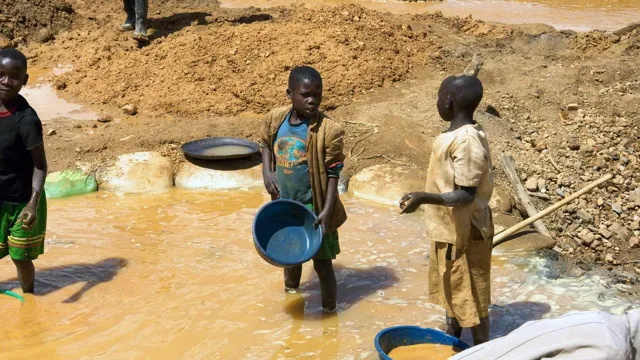
Electric car battery production and child labor
Electric car battery production has recently come under scrutiny for its potential involvement with child labor. Many of the minerals needed for electric car batteries, such as cobalt, are mainly mined in the Democratic Republic of Congo (DRC). Unfortunately, the DRC has a long-standing history of child labor, often involving dangerous working conditions.
It is estimated that 20% of cobalt sourced from the DRC involves child labor, although exact numbers are difficult to determine due to the challenging working conditions. Many electric car manufacturers have stated that they are working to reduce their reliance on cobalt and other materials that may be linked to child labor, but it is clear that this is a complicated issue that requires ongoing attention and effort. As consumers, it is important to think carefully about where the products we use come from and to support companies that prioritize ethical sourcing and production.
Examining the sources of child labor in battery manufacture
The production of electric car batteries has been linked to child labor in some regions where the sourcing of raw materials is done. In places like the Democratic Republic of Congo, where a significant portion of cobalt – a key ingredient in lithium-ion batteries – is mined, there have been reports of children being forced to work in mines. Despite efforts by some companies to address the issue, it remains a complex problem due to the lack of transparency in supply chains and the informal nature of cobalt mining.
In addition, there are concerns that other materials used in battery manufacture, such as nickel and lithium, may also have links to child labor. This highlights the need for greater transparency and regulation in the entire battery production process, from raw material sourcing to manufacturing and disposal. As consumers, we have a role to play by choosing products from companies that prioritize ethical and sustainable practices, pushing for accountability in the industry, and supporting initiatives that promote fair working conditions.
Statistics and data revealing the extent of the issue
Electric car battery production has been linked to child labor, and the statistics and data surrounding this issue are concerning. A recent report found that over 40,000 children under the age of 18 are estimated to be working in cobalt mines in the Democratic Republic of Congo, which is a key source of the cobalt needed for electric car batteries. This is particularly alarming given that cobalt is an essential component of the lithium-ion batteries used in electric vehicles.
The report also found that many of these children work in dangerous conditions, with no protective clothing or equipment. These children are at risk of serious injury or death from accidents, as well as exposure to hazardous chemicals. Efforts are being made to address this issue, but more needs to be done by electric car manufacturers and the wider industry to ensure that their products do not contribute to child labor.
Initiatives to combat child labor in battery production
The electric car battery industry has been under fire in recent years due to concerns about child labor in its production. Fortunately, there are a number of initiatives underway to combat this issue. One such initiative is the Responsible Minerals Initiative (RMI) which is working with companies across various industries to establish responsible sourcing practices for minerals, such as cobalt, that are used in battery production.
Additionally, organizations like the International Labour Organization (ILO) are leading efforts to improve working conditions and eradicate child labor in the industry. These initiatives are crucial for ensuring that the production of electric car batteries does not come at the cost of child exploitation. Ultimately, it is up to consumers to demand ethical and sustainable practices from companies, as they have the power to create the necessary change in the industry.
Corporate and industry responses to child labor allegations
Battery production has been under scrutiny for its use of child labor, particularly the mining of cobalt in countries like the Democratic Republic of Congo. As a response, many corporations and industries have taken initiatives to combat this issue. One such initiative is the Responsible Cobalt Initiative, which aims to improve conditions for workers in cobalt mines and prevent child labor.
Companies like Apple have joined this initiative and are working towards responsible sourcing of cobalt for their products. Another initiative is the Child Labor Due Diligence Tool, which provides companies with guidance on identifying and addressing child labor in their supply chains. These initiatives have the potential to make a significant impact in the fight against child labor in battery production and provide hope for a more ethical and responsible industry.
International efforts to address child labor in battery production
As the demand for electric vehicles increases worldwide, so does the need for batteries. Unfortunately, this has led to an alarming increase in child labor in battery production. Thankfully, international efforts are being made to combat this issue.
One initiative is the Battery Passport, developed by the Responsible Cobalt Initiative (RCI), which tracks the sourcing and production of cobalt used in batteries to ensure it is ethically and sustainably mined. Another effort is the Child Labor Platform, formed by the Global Battery Alliance, which brings together key actors in the battery value chain to identify and address child labor risks. Additionally, companies like Tesla and Apple have vowed to only source cobalt from ethical sources and have implemented strict auditing procedures in their supply chains to combat child labor.
These are important steps in promoting ethical and sustainable battery production and protecting children’s rights.
What can consumers do?
As consumers, we have the power to demand change in the way our products are made and sourced. When it comes to electric car batteries and child labor, we can start by researching and choosing companies that have transparent supply chains and prioritize ethical sourcing practices. Supporting and purchasing from businesses that prioritize fair labor practices can make a significant impact in reducing the demand for products made with child labor.
Additionally, we can advocate for stronger regulations and policies that hold companies accountable for their sourcing practices and ensure that human rights are protected. By taking these actions, we can work towards a more just and sustainable future, and help put an end to child labor in the production of electric car batteries.
Choosing ethical electric car batteries and supporting fair labor practices
As electric cars become more popular, it’s important to consider the ethical implications of the production process. One major concern is the sourcing of materials for the batteries. Consumers can seek out companies that prioritize ethical sourcing and production practices.
For example, some battery manufacturers use recycled materials and partner with organizations that promote fair labor practices. Additionally, consumers can support initiatives that raise awareness about the importance of ethical production and hold companies accountable for their practices. By making conscious choices and supporting ethical practices, we can work towards a more sustainable and socially responsible future for electric vehicles.
Conclusion and call to action
In conclusion, while electric cars may seem like the solution to our environmental problems, we must not overlook the dark reality of child labour and exploitation in the production of their batteries. The irony is that our desire to be more eco-friendly may actually be contributing to the destruction of young lives and communities. It’s time for us to take a closer look at the true cost of our sustainable choices and choose a better path forward.
As consumers, we have the power to demand ethical production practices and advocate for the rights of these child labourers, making sustainable choices truly sustainable for all involved.”
FAQs
How are electric car batteries linked to child labor?
Electric car batteries contain minerals such as cobalt, which are often mined in countries with weak labor laws, leading to child labor.
What steps are being taken to address the issue of child labor in electric car battery production?
Some car companies have committed to using responsibly sourced minerals and implementing child labor protection policies in their supply chain.
Are all electric car batteries prone to using child labor?
No, not all electric car batteries contain minerals linked to child labor. Some manufacturers are using alternative materials such as lithium iron phosphate which are less likely to have been produced through exploitative labor practices.
Can consumers make a difference in reducing the demand for electric car batteries produced using child labor?
Yes, by choosing to buy electric cars from manufacturers who are committed to responsible mineral sourcing and labor practices, consumers can help reduce demand for products produced through exploitative labor practices.
